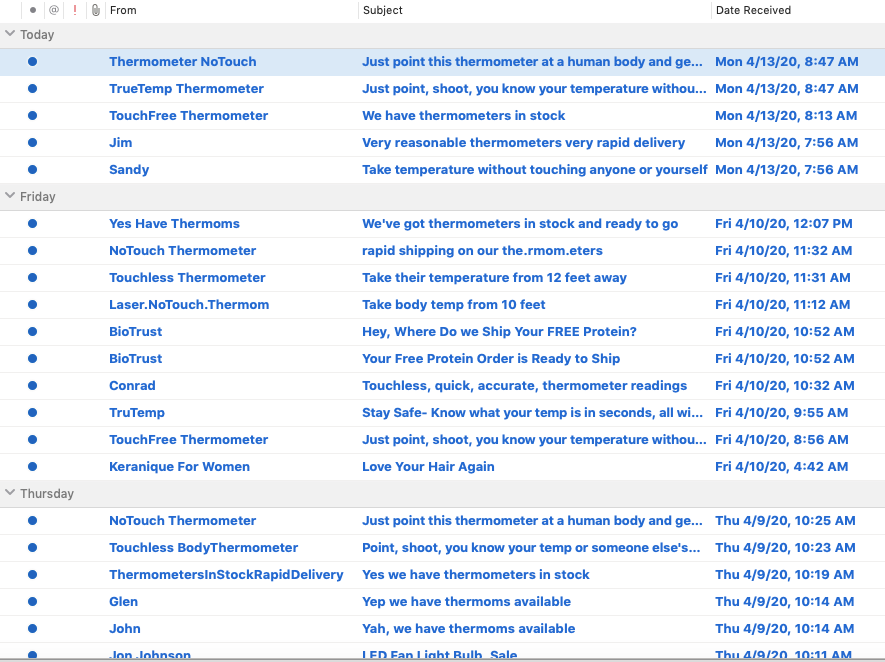Interesting spam/phish technique: Look for subdomains with CNAMEs or SPF records that point to abandoned domains that you can then register…and effectively take control of the subdomain or SPF.
They haven’t seen any cases where it’s been used to host a phishing site at, say, an msn.com subdomain, but they’ve seen thousands of cases where it’s been used to pass email verification checks.
The article describing “SubdoMailing” gives a detailed example of a spam that made use of an msn.com subdomain that was used for a sweepstakes way back in in 2001, with a CNAME pointing to the long-abandoned domain name for the contest, but the subdomain was never actually deleted.
Lesson: check your DNS for any dangling references to outside domains that might not exist anymore!
